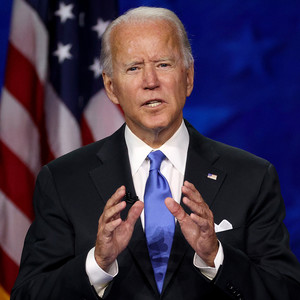Banks named transfers abroad as the most important area of work

The vast majority of Russian banks - 88% - in 2024 intend to develop products related to foreign exchange transactions, foreign economic activity and cross-border transfers. This conclusion is contained in the study of the NKR rating agency and the B1 group of companies “Adaptation and stability. How the banking system will pass through 2024,” which RBC studied. These areas of development are of greatest interest to banks compared, for example, to the digital ruble, ecosystem services, installment plans, etc.
“This can be explained by the desire to compensate for damage to these business areas from geopolitical factors, the continued high demand for cross-border transactions and the expansion of foreign economic relations with friendly foreign countries,” the authors write.
The authors of the study conducted a survey of financial directors of 33 Russian banks in December 2023 - January 2024. Both the largest and medium-sized credit organizations took part in the survey, the total share of assets of which is 65% of the total assets of the Russian banking system. In particular, eight of the ten largest banks took part in the study.
18 banks (56%) reported high interest in the development of cross-border transfers; for eight credit institutions (25%) it is of medium interest, and for six it is of low interest. The development of products in the currencies of friendly countries and foreign economic activity is of high interest to half of the survey participants.
“The situation with foreign exchange transactions is currently difficult. On the one hand, RUSSIA continues to establish and develop economic ties with friendly countries, which is always based on the possibility of mutual settlements and payments. On the other hand, the functioning of settlements within banking systems is complicated due to the threat of sanctions pressure from the West on partners from friendly countries,” explains B1 partner, HEAD of services for financial sector companies Gennady Shinin. Despite the sanctions , banks continue to carry out settlements with a number of friendly countries and in the near future will continue to develop correspondent relations and mutual settlement schemes with CIS countries and partners from CHINA , Turkey, and the Middle East, he adds. However, in the future, cross-border payments may reach a new level without the participation of the traditional banking system. For example, cryptocurrency can be used for this , Shinin admits.
At the same time, most banks have little interest in the development of green financing (21 banks noted low interest in this area, nine - medium, none - high), BNPL installment services (17 banks - low, and only four - high), as well as digital financial assets (out of 23 that chose this direction, 14 banks have low interest). Interest in the digital ruble is also relatively low: 13 credit institutions rated it as low, and the same number rated it as medium. Only six banks showed strong interest.
Why do banks need foreign exchange transactions and transfers?Since the beginning of 2022, that is, after the introduction of sanctions against the financial system due to the military operation in Ukraine , Russian banks have encountered difficulties in conducting international payments. Many of them are disconnected from the SWIFT financial messaging system, and even regardless of access to SWIFT, transfers in dollars or euros are not available to sanctioned banks. In addition, since the spring of 2022, foreign credit organizations began to cut off correspondent accounts of Russian banks, regardless of their location on sanctions lists, or increased verification of transfers from Russia. As a result, large banks began to look for alternative ways to conduct cross-border transfers, replacing dollars and euros with rubles and currencies of friendly countries. Mikhail Kovrigin , DIRECTOR of the department for organizing international payments at the Bank of Russia, noted that banks are now forced to conduct cross-border money transfers “sideways and crawling.”
RBC Pro development program Master 52 skills in a year Development program is a convenient tool for continuous learning of new skills for a successful career “Smile and wave”: 9 principles of effective communication Rescue of a top manager: 10 techniques for answering tricky questions Improves productivity and well-being: how to proceed on a non-linear graph A leader who doesn’t leave: how to earn the loyalty of subordinates Why attention management is now more important than time management “Let it all burn with fire”: how a manager can cope with burnout How to force yourself to constantly move forward - nine simple tips “I can do anything” : 5 habits of self-confident people - Fast Company Why gesturing is a superpower, still poorly studied by science What Henry Ford was wrong: 6 bad tips from world business gurus Million DOLLAR environment: how to find friends with whom you want to develop Leaders analyze too much . When to rely on experienceThe situation became more complicated after US President Joe Biden signed a decree in December 2023, according to which foreign banks could be subject to restrictions for helping with transactions with sanctioned entities and with supplies to the Russian defense industry. After this, difficulties arose with making payments and transfers, including in Chinese yuan and Turkish lira. For example, as Vedomosti reported with reference to business owners trading with Turkey, some banks in this country began to close accounts of Russian companies from the beginning of 2024 and tightened requirements for individuals from Russia who want to open cards.
There is no reason to believe that geopolitical risks will decrease in the near future, says Kira Vinokurova, partner at Pen&Paper Bar Association. On the contrary, problems began to arise with China, Turkey and the UAE. Therefore, according to the expert, banks will increase the geography of transfers and establish cooperation with new jurisdictions. “Attention here can be paid not only to the currently popular Turkey and China , but also to African countries. Like banks, companies involved in foreign trade are forced to explore new markets, and it is possible that providing high-quality and fast transfers to now non-traditional jurisdictions will be precisely the advantage that will allow these areas to develop in the long term,” the lawyer suggests.
Co-chairman of the Association of Russian Banks committee on payment systems, Alexey Maslov, believes that now it is important for banks to pay attention to strengthening the teams that deal with these areas. “Processes related to foreign exchange transactions have become very labor-intensive. Correspondent accounts cannot now be opened simply by correspondence; representatives of Russian banks need to go to foreign partners and get to know them personally. Sometimes it takes several visits to achieve results. Therefore, it is necessary to ensure that there are sufficient resources for the development of foreign exchange products and cross-border transfers. It is desirable that specialists know several languages. In order, for example, to negotiate with Chinese banks in Chinese, and with UAE banks in Arabic,” the expert argues.
What else are banks talking about? 88% of surveyed organizations based their business planning for 2024 on the average annual value of the key rate in the range of 12.5–15%. This is less than the actual rate, which is currently 16%. “This result can be interpreted as an expectation of a moderate reduction in the key rate during 2024 as inflation slows. Only 6% of respondents expect a slightly higher average annual key rate, another 6% expect a faster decline,” explain the authors of the study. In general, all survey participants expect the ruble exchange rate to remain at the achieved values. Course 90–100 rub. per dollar was included in plans for 2024 by 73% of respondents. The remaining banks expect an exchange rate in the range of 80–90 rubles. for a dollar. Now the dollar is trading around 92 rubles. 42% of survey participants expect net profit growth in 2024, another 24% expect it to remain the same. This indicates the successful adaptation of the banking sector to the challenges facing it, according to NKR and B1. However, the remaining 9% of respondents fear a decrease in net profit, which they themselves characterize as “significant.”Despite geopolitical risks, slightly more than half of the banks surveyed (52%) expect to maintain the current level of income from foreign exchange transactions, while 30% of credit institutions predict a significant decrease. “Probably, such skepticism is associated with expectations of more stable dynamics of the national currency exchange rate. As a rule, banks earned money precisely during periods of significant fluctuations, for example, in 2022-2023, while in 2021 their income from foreign exchange transactions was low,” the authors of the study say. The trend of rapid growth in operating expenses continues: only 21% of surveyed banks predict an increase in expenses for creating reserves in 2024, and an increase in operating expenses - 79%. “The main drivers of growth in operating expenses are the wage fund (82% of respondent banks planned an increase) and software development (about 70% of banks). Import substitution of software has become a particularly acute problem in the last two years,” the study explains. More than a third of Russian banks believe that they will not have time to fulfill the requirements for the transition from foreign software to Russian before January 1, 2025. “Significant problems remain with the availability of the required range of software, its implementation and ensuring compatibility with other elements of banking systems,” the study notes. At the same time, 59% of the banks surveyed included less than 500 million rubles in the annual budget for import substitution processes. Most banks (69%) plan to spend up to 599 million rubles on the development of artificial intelligence, 18.8% - up to 1.5 billion rubles. Overall, 52% of surveyed banks use this technology.Read together with it:
- Serbia's NIS's only refinery will resume operations.The company received a license from the US Treasury to continue operations until January 23. In December, it announced the suspension of operations at its only refinery in the country due to a shortage of crude oil amid US sanctions.Serbian oil refinery NIS has received a license from the US Treasury Department's Office of Foreign Assets Control (OFAC) to continue operations until January 23, said...
- Финские власти раскрыли, что перевозило следовавшее из Петербурга судноЗадержанное в финских водах судно Fitburg перевозило конструкционную сталь «российского происхождения», заявила таможенная служба. Сейчас ведомство проверяет, распространяются ли санкционные нормы на этот конкретный случай На борту грузового судна Fitburg, задержанного финскими властями в канун Нового года, была конструкционная сталь «российского происхождения», сообщает Euractiv со ссылкой на зая...
- Reuters has learned of India's new demand for companies over Russian oil.The origin of oil supplies is usually reflected in companies' monthly reports, but now they are required to report supplies from RUSSIA on a weekly basis.REUTERS believes the new demands are linked to India's plans for a deal with the US. The Indian Oil Ministry's Petroleum Planning and Analysis Cell (PPAC) has begun requesting information from refineries on crude imports from Russia and the Unite...
- От самолетов до лекарств из плазмы крови. Пархомчик об амбициозных проектах Брестской областиПетр Пархомчик Председатель Брестского облисполкома Брестская область, продвигая себя под брендом "#1регион", стремится к лидерству во многих сферах. Производство уникальных лекарств, сборка самолетов и речных судов - лишь некоторые амбициозные проекты, над которыми уже работают брестчане. Председатель Брестского облисполкома Петр Пархомчик в интервью корреспонденту БЕЛТА рассказал о развитии экон...





























































